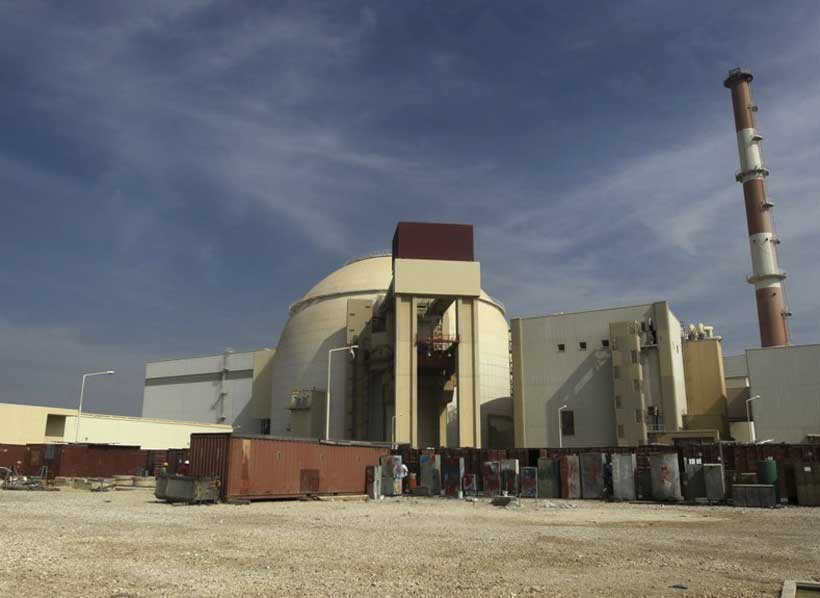In the final days of 2021, the eighth round of Vienna talks have been begun. Earlier, Ali Bagheri, Iran’s chief negotiator, traveled to Moscow, and Iranian Foreign, Minister Hossein Amir-Abdollahian spoke with his Chinese counterpart by telephone to coordinate next round of negotiations with Iran’s allies. Previously, Iran’s new conservative president, Ebrahim Raisi, on Iranian state television called for “result-oriented negotiations” with the West while urging the US to lift “unjust sanctions.”Hossein Amir-Abdollahian, in an article written exclusively for the Moscow-based Kommersant newspaper, stressed that the Islamic Republic intends to continue “active diplomatic efforts to lift the US sanctions.”
Earlier, the Iranian delegation headed by Ali Bagheri raised five conditions in previous Vienna talks. Iran’s first and foremost demand is the lifting the US secondary sanctions related to the Joint Comprehensive Plan of Action(JCPOA), known commonly as the Iranian nuclear . The other two conditions are the possibility of verifying the lifting of sanctions and giving guarantees by the US. Tehran has also set compensation for the damage done to Iran by Trump’s sanctions and the return of all relevant parties to adhere to the nuclear agreement as its fourth and fifth conditions. Iran has also submitted two documents to the 5+1parties to the Vienna talks on the lifting of sanctions and nuclear measures which Iran should take in response.
It seems that the central demand of Iranian new administration is the lifting of strategic sanctions such as the free trade of Iranian oil exports and the transfer of Iranian money from foreign banks, as well as the US guarantee that the next US administration will not repeat the experience what Donald Trump did against Iran. The rest of Iran’s demands are more a bargaining chip than a decisive or deterrent condition. Because Iran, under the influence of the Iranian proverb “Who was bitten by the snake fears the black and white rope,” looks at the new round nuclear talks and expect a guarantee that the US commitment will continue. As US officials, including Robert Mali, have stated in several occasions, the United States is ready to suspend strategic sanctions step by step in exchange for Iran returning to its nuclear commitments under JCPOA. But the Biden administration will not be able to lift congressional sanctions against Iran or guarantee that the next US administrations will commit to any nuclear deal such as the modified JCPOA. On the other hand, the US government will also not be able to turn JCPOA into a treaty and get it approved by the US Senate. But there is a shortcut solution to reassure Iran, and that is to accept the compulsory jurisdiction of the ICJ. It means that any international legal dispute involving the interested States may be submitted to the Court, provided that all the States party to the dispute before the ICJ have accepted its compulsory jurisdiction.
In most international treaties, for the proper implementation of the provisions of treaties by the contracting countries or the settlement of subsequent disputes, the compulsory jurisdiction of the ICJ is included. But the problem is that JCPOA or any future nuclear deal is not a treaty. But there is a solution to this problem. The 5+1 Countries can bring this document under the ‘executive agreement’ or ‘modes vivandi’. According to section 1 of Article 2 of Vienna Convention on the law of treaties, “treaty means an international agreement concluded between States in written form and governed by international law, whether embodied in a single instrument or in two or more related instruments and whatever its particular designation.” Therefore, a written agreement or modus operandi is also subject to Vienna Convention on the law of treaties. In this case, there will be no need for the approval of the US Senate or the Iranian parliament, and on the other hand, there will be a binding commitment for subsequent US administrations. If, in the case of the US next administrations’ likely withdrawal from the nuclear deal, Iran can go to the ICJ and claim damages. Here, judges of ICJ, by invoking to ‘the principle of ‘supremacy of international law over the domestic law,’ consider the case admissible and will adjudicate. This issue can play a legal deterrent for the next US administrations in unilaterally withdrawing from the JCPOA, and Iran will be more motivated to accept diplomacy. On the other hand, in order to close the legal loopholes of the new nuclear deal, it is necessary for 5+1 countries to sign a new document. Because according to section 1 of Article 12 of Vienna Convention on the law of treaties, “the consent of a State to be bound by a treaty is expressed by the signature of its representative when the treaty provides that signature shall have that effect.” That way it is more probable that diplomacy in the Vienna talks to bear fruit.


